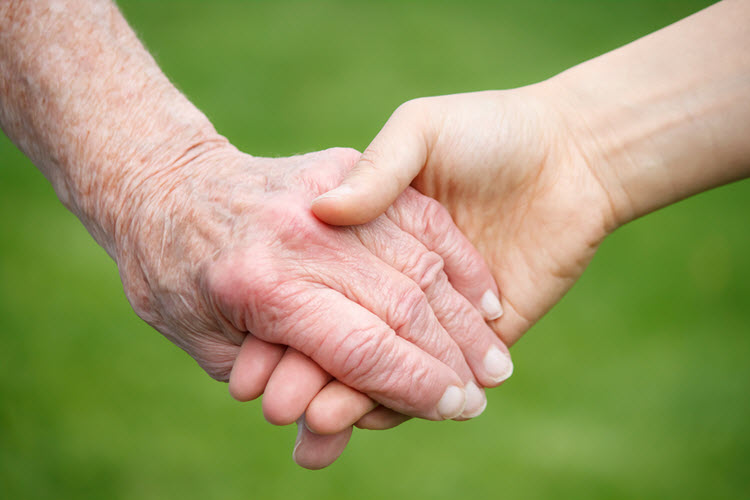What is available?
Did you know that in the United States today 3.7 million people with dementia live at home and are cared for by family members? (source: Johns Hopkins Medicine) (Jump to Lessons Learned)
Caring for a person with dementia often involves a myriad of responsibilities, including daily ongoing personal care, medication management, filling the day with engaging activities, finding programs and services, making medical appointments, and handling insurance.
Caregivers on average spend 24.4 hours per week providing care. About 1 in 4 provide care for 41 hours or more each week, an amount of time equivalent to a full-time job. Moreover, the median time spent on family caregiving responsibilities is five years. The stress and burdens while providing care can put caregivers at risk for multiple health problems, including compromised immune systems, depression and even cognitive decline. (Source: National Alliance for Caregiving)
Strategies for Success:
If you are a family caregiver or know one, the first critical step is to recognize and accept that primary caregiving responsibilities cannot be successfully handled alone. Each family member needs to assess his/her actual availability and ability to share various tasks. If you don’t have a network of family to share in planning and responsibilities, think about working with a geriatric care manager.
A well-coordinated plan needs to be developed along with monitoring. Those family members responsible for direct care need to understand the impact of dementia, learn skills, and recognize when they need help. Caregiver stress is common to dementia caregivers and it is important to recognize the signs and take action. (Source: Alzheimer’s Association).
Services that support family caregivers include:
- Community based services such as adult day care
- Respite Care offered by both long term and skilled nursing facilities
- Home Care Services, including personal, medical, and dental care
- Caregiver Support Groups
- Home maintenance, safety and monitoring devices
- Medication reminders
- Transportation services
- Wandering prevention
- Services and programs in your area can be found on your state website under the department of human services. If you live in NJ use here is a direct link: (NJ Department of Human Services)
Financial and Legal Planning
Alzheimer’s and related dementias are costly diseases. Putting financial plans in place early is important to help the family learn what will be needed and prepare for costs. Early planning may allow the person with dementia to participate in the decision making.
And plans in place early will help to avoid guardianship. Court supervised guardianship is costly, time consuming and ultimately families relinquish control to a court decision. An elder law attorney specializes in planning for older adults offers up to date knowledge about state laws, rules and regulations. To locate an elder law attorney, go to: National Academy of Elder Law Attorneys
Lessons Learned:
While the individual diagnosed with a form of dementia requires assistance, the family caregivers do as well. Here’s what to do:
- Increase your dementia knowledge and skills
- Create a well coordinated plan of responsibilities
- Be willing to accept help
- Connect with services and professionals in the field of
eldercare
A great resource that I recommend to families is the book “Untangling Alzheimer’s” by Tam Cunnings, PhD
Disclaimer: The material in this blog is for educational purposes only. It is not intended to replace, nor does it replace, consulting with a physician, lawyer, accountant, financial planner or other qualified professional.
 Vivian Green Korner, holds a Master’s degree from New York University and is certified as a dementia care practitioner. For the past twenty-five years she has dedicated her career to enhancing the lives of individuals challenged with Alzheimer’s disease and offering much needed support and guidance to their caregivers. She is recognized as a dementia expert. Vivian has an active private practice focusing on family caregiver issues. In addition, she provides dementia care training seminars to home health professionals throughout New Jersey. She is a caregiver support group facilitator through the Alzheimer Association, serves as a guest speaker for community groups and offers presentations on caregiver issues. Vivian’s commitment to raising Alzheimer’s awareness has lead her to creating and organizing community based Alzheimer’s Awareness Weeks in communities throughout New Jersey.
Vivian Green Korner, holds a Master’s degree from New York University and is certified as a dementia care practitioner. For the past twenty-five years she has dedicated her career to enhancing the lives of individuals challenged with Alzheimer’s disease and offering much needed support and guidance to their caregivers. She is recognized as a dementia expert. Vivian has an active private practice focusing on family caregiver issues. In addition, she provides dementia care training seminars to home health professionals throughout New Jersey. She is a caregiver support group facilitator through the Alzheimer Association, serves as a guest speaker for community groups and offers presentations on caregiver issues. Vivian’s commitment to raising Alzheimer’s awareness has lead her to creating and organizing community based Alzheimer’s Awareness Weeks in communities throughout New Jersey.

